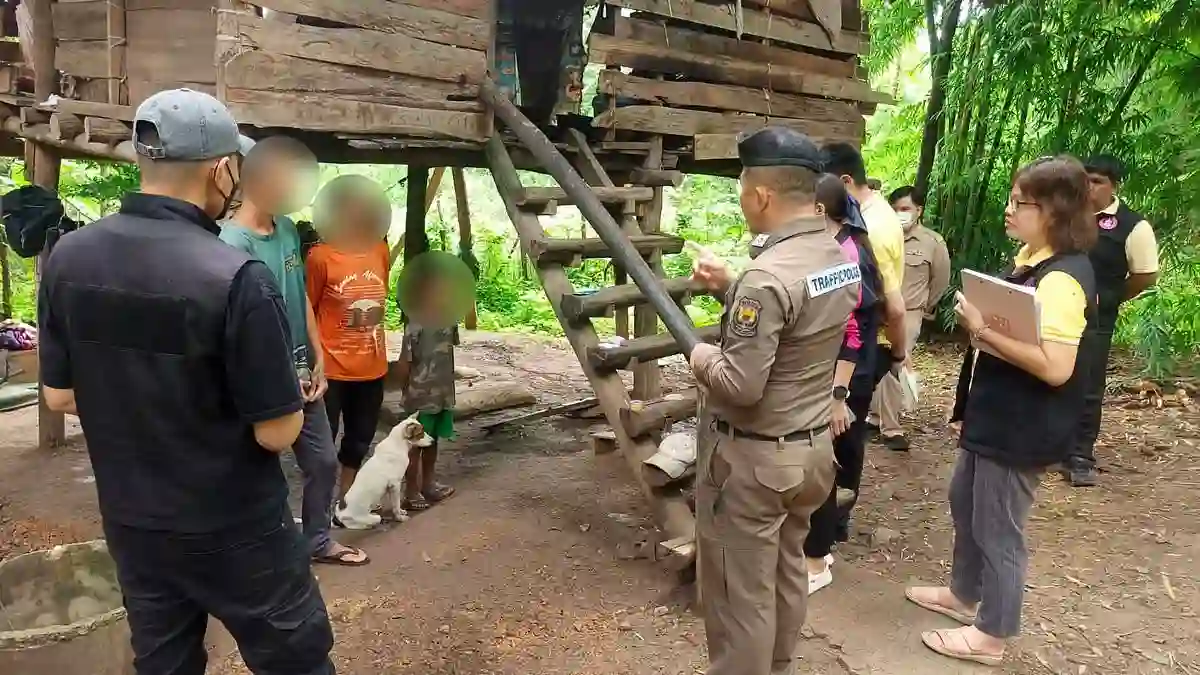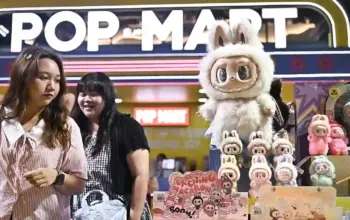In a quiet, rural part of northern Thailand, what started out as a routine welfare check turned into something straight out of a disturbing movie.
Authorities were stunned when they stumbled upon an eight-year-old boy who had been living not with other children or even properly with adults—but with a pack of dogs.
And shockingly, the boy didn’t speak like a typical child. He barked.
A Child Raised Among Dogs
The boy was found earlier this week in a ramshackle hut in Lap Lae District, Uttaradit Province.
He lived there with his mother, 46, and older brother, 23.
But this wasn’t your average family home—authorities described it as a “drug-infested” ruin, completely unsuitable for a child.
During the visit, both the mother and brother reportedly tested positive for drug use.
The heartbreaking reality? The little boy had essentially been left to fend for himself emotionally and socially, bonding only with the six dogs that roamed the home.
According to locals, he never went to school and didn’t have friends.
His only companions? The animals he lived with.
No Words, Only Barks
“When we found him, he didn’t speak at all—he only barked,” said Paveena Hongsakul, who heads a foundation focused on child and women’s rights.
Her team helped coordinate the rescue with the local police.
“It was devastating to see. He had no one,” she added.
Reports reveal the child had only attended one day of primary school.
Even though his mother had received a government stipend to support his education—roughly 400 baht (about £9)—she never followed through.
Instead, she reportedly kept him isolated at home.
Social Isolation and Community Rejection
The family had long been ostracized by their neighbors, who discouraged their own children from playing with the boy.
His mother was said to frequently beg for food and money at local temples.
And her drug use, now confirmed by tests, only deepened concerns about the child’s welfare.
One local teacher said bluntly, “The house is in a known drug zone.
That boy had no one but the dogs to play with.”
A Raid That Changed Everything
The rescue wasn’t accidental—it came after a school principal, Sophon Siha-ampai, raised the alarm about the boy’s wellbeing.
That triggered a multi-agency response, which led to a full raid of the home on June 30.
Photos from the scene show the child surrounded by police, activists, and a few of his loyal dogs.
During the operation, police performed urine tests on the adults in the home, both of whom tested positive for drugs.
The mother now faces formal charges related to drug use.
A New Beginning in Safe Hands
Thankfully, the boy has now been moved to a children’s home by social workers.
Paveena Hongsakul’s foundation, the Foundation for Children and Women, is working closely with authorities to ensure he gets the care and education he’s been deprived of for so long.
“The boy is getting a second chance,” Ms. Hongsakul said.
“We’re committed to following up with him, making sure he receives everything he needs to live a full life.”
The Reality Behind “Feral Child” Cases
Cases like this—where children grow up without human interaction or structure—are rare but incredibly serious.
They often get lumped into the category of so-called “feral children,” a term historically associated more with legend than reality.
Think of the myth of Romulus and Remus, the twin founders of Rome who were supposedly raised by a she-wolf.
But modern psychology has shown that these cases, while rare, are real—and the psychological toll can be enormous.
A Notable Case From History
One well-known example is Oxana Malaya, a Ukrainian girl found living in a kennel with dogs in 1991 after being abandoned by her alcoholic parents.
She had picked up the behavior of the dogs around her, walking on all fours and barking like them.
Though she later learned to speak and eventually re-enter society, the early trauma left lasting effects.
Moving Forward With Hope
The boy in Thailand now has the opportunity to rewrite his story.
It won’t be an easy road, but with the right support and long-term care, he can recover and adapt.
And perhaps, like Oxana, he can grow into a life that once seemed completely out of reach.
For now, the focus is on giving him the human connection, education, and emotional support he was cruelly denied—and helping him feel like a child again.



